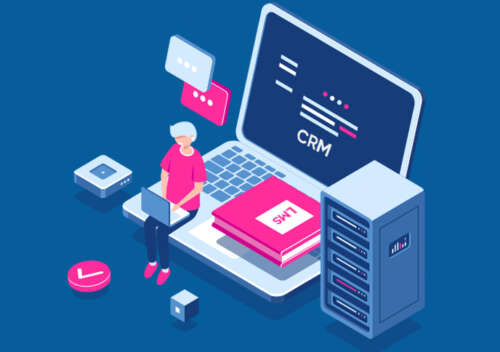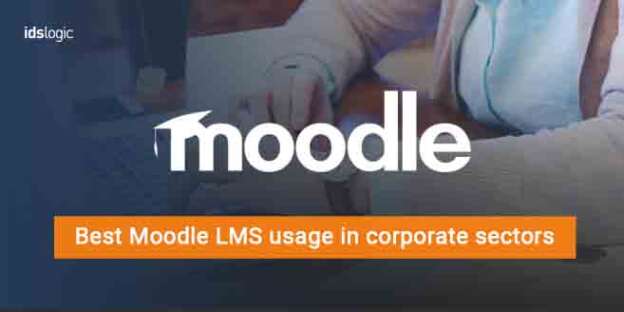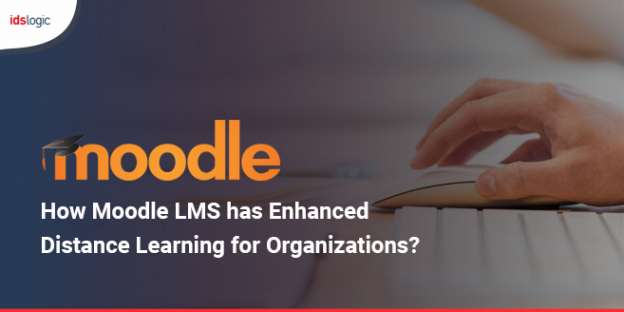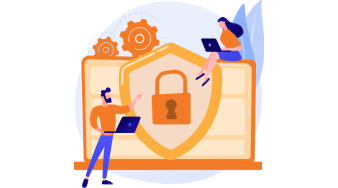Moodle support and maintenance services ensure your site remains up-to-date with every new development that comes across. Know more on how to secure trusted services.
The Security Aspect of Moodle Maintenance
As e-learning gains traction, many organisations are opting for Moodle maintenance as their preferred learning management system. Its flexibility and user-friendly interface make it a popular choice for delivering online courses and training programs.
However, like any web-based application, Moodle is susceptible to security risks. Therefore, it’s crucial to take proactive steps to secure your LMS, safeguard sensitive information, and prevent unauthorized access.
In this guide, we’ll delve into best practices for Moodle security, covering potential risks, vulnerabilities, and key features. By adhering to these guidelines, you can ensure that your Moodle installation remains safe and secure for both you and your learners.
How Safe is Moodle LMS?
Moodle platforms store a substantial amount of data, including email addresses and messages, which makes Moodle LMS development security paramount. While this data accumulation is expected, having robust security measures in place is essential to prevent hacking or disruptions by malicious entities.
When collaborate with educational institutions holding sensitive student information, providing it security is the main concern. In additional to this, large organisations with platforms containing data on tens of thousands of users, there cannot be any mistake in security concerns. In each case, ensuring platform security is paramount.
Moodle LMS is built with a ‘security-by-design’ approach and benefits from support from the global security community. The software undergoes continuous testing and monitoring to meet all privacy compliance obligations. Additionally, Moodle offers education and ongoing communication to users and partners.
However, it’s crucial to understand that while the software is a significant component, how it’s managed and the infrastructure architecture hosting it are equally vital elements, often beyond the control of the software provider. However, choosing Moodle while getting into e-learning environment will offer you security options like Moodle maintenance and support, Moodle LMS development, and more.
Why Trusted Moodle LMS Development Services Matter?
While complete protection is never guaranteed, partnering with a certified Moodle LMS development service provider can offer substantial benefits, particularly for larger and more complex Moodle maintenance instances. With their extensive experience in Moodle projects, certified partners can optimize your LMS, delivering quality, efficiency, and cost savings
Additionally, partnering with a certified provider grants access to extra support, customization options, spam protection, daily backups, and priority access to new releases and security patches. These benefits are exclusive to partnering with a trusted provider.
Moreover, leveraging your partner’s secure and highly optimized cloud infrastructure, along with their 24/7 support, can provide peace of mind. This allows you to focus on teaching, learning, and ongoing internal staff training and development.
Moodle Support: How Integrated Features Keep Your Platform Safe?
Design Security
Companies providing Moodle development services have adhered to a rigorous development process known as “security by design” since its inception. This approach ensures that every development or change made to Moodle prioritises the platform’s security. A comprehensive list of these security by design processes offers valuable insights to the clients seeking similar services.
Protection of Data
Moodle ensures that it will never collect, use, or monetise any data stored on your Moodle platform. This commitment, combined with the availability of various policy documents and data request tools accessible to service provider ensures that your platform remains fully compliant with GDPR regulation.
Proactive Testing
Moodle LMS development services employ a proactive security testing and vulnerability. This partnership enables global security researchers to continuously test Moodle for vulnerabilities. Additionally, Moodle benefits from its large user base, which includes millions of administrators and security experts who actively monitor for potential vulnerabilities and report them through the vulnerability disclosure program.
The security of Plugins
There are several advantages of Moodle Plugins. Given that these plugins are typically developed by third parties, there are concerns about their security. To address this, Moodle mandates that all plugins implement a Privacy API, ensuring they comply with GDPR regulation. This ensures that the plugin features are safe to utilise by service providers offering Moodle LMS development services.
Recommended Tips for Moodle to Offer Security
Registering the Mobile Site
This practice ensures that you’re promptly notified of new Moodle versions, enabling you to maintain the latest security features.
Backing-up Site Regularly
You can create a backup of your Moodle LMS platform so that if any issues arise, you can restore it to a version from before the problem occurred.
Stick to the motto, “least privilege”
A hierarchical structure ensures that those at the top, like administrators, have access to the most information, while those at the bottom, such as learners, have access to the least. It’s crucial to ensure that users only have access to content that is relevant to them.
Site feature should be in line with Moodle recommendations
Moodle regularly releases documentation that outlines the best practices for setting up your platform securely. You can follow the Moodle security recommendations document for guidance and run a security overview report to ensure your platform is secure.
Reporting Issues
Utilise the security reporting forum to notify Moodle of any potential vulnerabilities you observe. Once these issues are reported, Moodle can address them promptly.
A Note on Moodle LMS Security Features
Moodle, like any software, may have potential security vulnerabilities. However, it also offers a range of security features aimed at safeguarding critical information and preventing unauthorized access, which includes the following:
User Authentication
Moodle provides strong user authentication options, empowering administrators to establish secure login credentials for each user. This includes implementing robust password policies and enabling two-factor authentication for accessing the platform.
Access Control (Role-Based)
Moodle’s role-based access control system enables administrators to manage access to different areas of the platform based on user roles or permission levels. This ensures that users can only access the information relevant to their role.
Tracking and Logging Activity
Moodle maintenance and support maintains detailed logs of user activity, enabling the identification of suspicious behaviour and the prevention of security breaches. Administrators can configure alerts to notify them of potential security issues or violations.
Encryption
Moodle supports data encryption both at rest and in transit, ensuring that private user information is protected from unauthorized access or interception, whether stored on the server or actively transmitted between devices.
Anti-malware Support
Integrating Moodle with anti-malware and antivirus software can protect it against security threats, preventing the installation of malicious software on users’ devices and detecting and removing any infections.
How to Prevent Moodle Vulnerabilities
Although Moodle provides a range of security features to safeguard user data and deter unauthorized access, it’s important to acknowledge that potential risks and vulnerabilities still exist. Some of these include:
Brute Force Attacks
Moodle can be susceptible to brute force attacks, a type of cyberattack in which automated tools are used to guess a user’s login credentials by trying various password combinations. To mitigate these attacks, it’s crucial to enforce strong password policies and limit the number of login attempts. Hence, it is crucial to choose a company that can offer complete Moodle support services.
Cross-site scripting or XSS
Cross-Site Scripting (XSS) attacks pose a risk to Moodle if user input is not sanitised correctly, allowing malicious code to be injected into a web page. To prevent XSS attacks, it’s essential to validate and sanitize all input data thoroughly.
SQL Injection
Moodle relies on a database to store crucial user data. However, it is vulnerable to SQL injection attacks, where attackers inject malicious SQL queries to the database to gain unauthorized access or manipulate its data. To prevent such attacks, it’s crucial to validate user input and use prepared statements in database queries.
Prepared statements are a secure and efficient way to execute SQL queries. They involve using placeholders for user input that are later bound, ensuring that malicious information cannot be executed as part of the original query. This method is commonly used in modern web application development to secure database access and prevent SQL injection attacks. An experienced Moodle LMS development will ensure this service.
Phishing Attacks
Phishing attacks remain a prevalent method for stealing login credentials and sensitive data. It is essential for Moodle users to remain vigilant against suspicious emails and only input their login details on the official site.
Outdated Software
Regularly updating Moodle is crucial to address security vulnerabilities and enhance performance. Failing to keep installations up to date can leave users vulnerable to security threats and exploits. It is essential to regularly check for updates and apply them promptly to maintain a secure and efficient Moodle environment.
Improving Moodle Security with IDS Logic
IDS Logic offers specialised Moodle support and maintenance to users who prioritise security, reliability, and uninterrupted access for their teachers and learners. As a trusted service providers that offer security recommendations, we are committed to assisting you in finding a solution that is both cost-effective and ensures the quality of your LMS experience.
Our goal is to ensure that your Moodle platform runs smoothly and efficiently, giving you peace of mind and allowing you to focus on delivering a top-notch learning experience to every user seeking the assistance.
We understand the critical importance of website security, which is why we have developed a complete package for your security needs. We have designed plans to safeguard your websites against a wide range of malicious attacks, boasting an impressive 99.998% success rate in thwarting suspicious activity.
With Our assistance you can have the assurance that your website is safe against common threats, allowing you to run your online business with confidence. Our services specifically focus to cater to mission-critical websites, providing unparalleled security measures, continuous uptime, and maximum protection against cyber threats.
In Conclusion
In conclusion, maintaining a secure and efficient Moodle LMS development environment requires a combination of proactive measures and regular monitoring. By implementing the best practices outlined in this guide you can create a great LMS environment for users. These practices include regular updates, user training, and data management, you can ensure that your Moodle platform remains a safe and effective tool for delivering online education.
Additionally, partnering with a certified Moodle provider can offer valuable expertise and support to help you navigate the complexities of maintaining a Moodle instance. With these strategies in place, you can optimize your Moodle platform for success and provide a seamless learning experience for your users.
FAQ
How Often Moodle LMS requires Security?
It’s crucial to regularly update your Moodle installation with the latest security patches and updates to address known vulnerabilities. Check for updates frequently and install them promptly, ideally within a few days of their release, to maintain a secure Moodle environment.
How to Identify If My Moodle Site is safe?
If you suspect that your Moodle site is not safe, it’s important to act swiftly to mitigate any potential damage. Take immediate steps such as disconnecting the site from the internet, changing all passwords, and restoring a recent site backup. Additionally, investigate the cause of the security breach to prevent future incidents.
How to Educate User on Moodle Security?
Educating users on security is crucial. Provide clear guidelines on password policies and access control measures, and conduct regular training sessions on identifying and preventing security threats. Additionally, include helpful learning resources such as articles, videos, and posters to reinforce best practices and raise awareness of potential risks.
What are the Tips to Run Moodle Site With Security?
To enhance the security of your Moodle installation, ensure you regularly update the LMS and its plugins. also ensure removal of any unused add-ons. Additionally, follow best practices for better user experience. These practices will include selecting a reputable hosting provider, using HTTPS, restricting access to sensitive files and regularly backing up your data.
What Moodle Services Does IDS Logic Offers?
IDS Logic offer complete Moodle LMS development and Moodle design services. The range of our services also include Moodle support and maintenance. We have been providing Moodle maintenance actively to a bunch of global clienteles. this helps them improve the scope of their services across the globe. We have a dedicated team to ensure time maintenance services for a number of other technologies. You can find from our service profile. Added benefits of our services include 24*7 service assistance.












